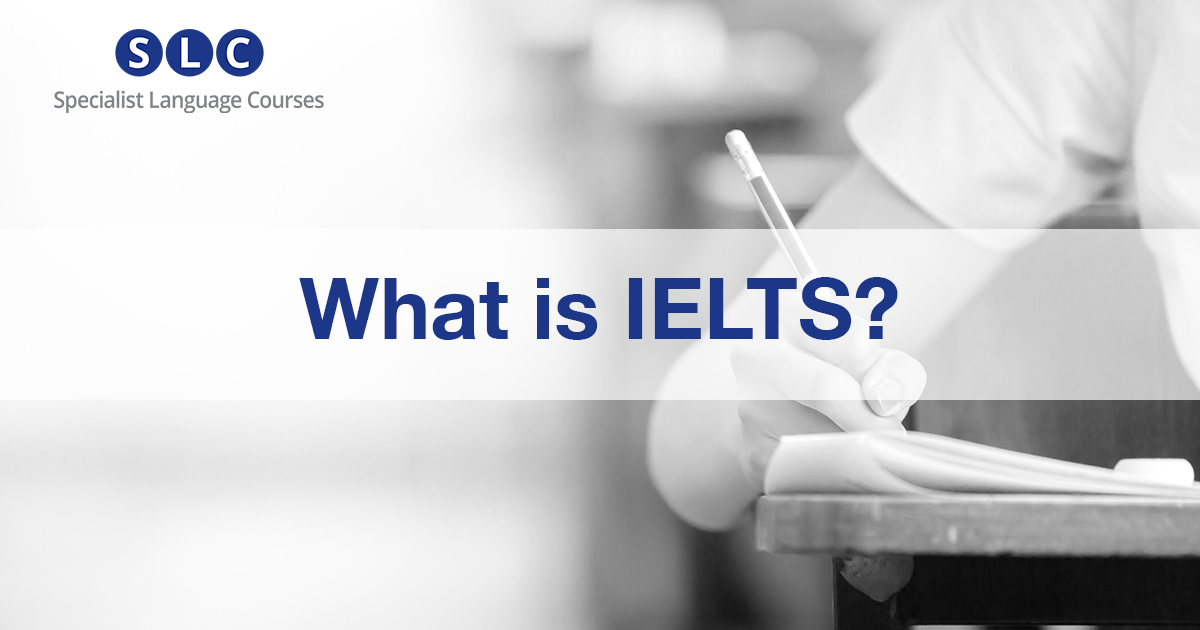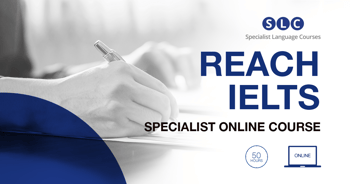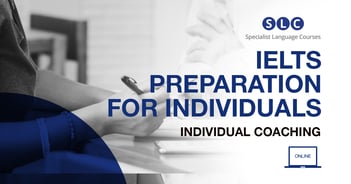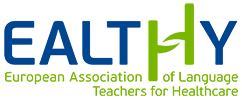The IELTS Academic test was originally designed for students who wish to study in English speaking universities at either degree or postgraduate level. It is now also one of the tests accepted by the GMC and NMC to demonstrate that overseas-trained doctors and nurses have sufficient English skills to practise safely and effectively in the UK.
How is the IELTS Test Scored?
There is no pass or fail for the IELTS exam. Instead, learners receive a band score between 1 and 9 for each of the 4 papers – Reading, Listening, Writing, Speaking, and an overall average.
Doctors require a minimum of 7.0 in all 4 papers and an overall 7.5. Nurses require a minimum of 7.0 in the Reading, Listening and Speaking papers, a 6.5 in the Writing paper and an overall 7.0.
How do the Scores Correlate to English Level?
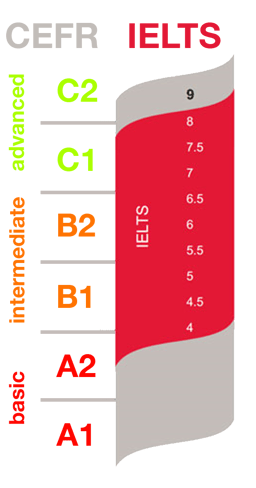
7.0 and 7.5 are within the advanced level C1 band. At C1, you can:
- Understand a wide range of demanding, longer texts and recognise implicit meaning.
- Express ideas fluently and spontaneously without much obvious searching for expressions.
- Use language flexibly and effectively for social, academic and professional purposes.
- Produce clear, well-structured, detailed text on complex subjects, showing controlled use of organisational patterns, connectors and cohesive devices.
7.0 is at the lower end of C1. According to IELTS, scoring 7.0 demonstrates the candidate ‘has operational command of the language, though with occasional inaccuracies, inappropriateness and misunderstandings in some situations. Generally handles complex language well and understands detailed reasoning’.
How long does it take to go up a band in IELTS?
To up 1 band in IELTS typically takes the average student approximately 200 hours of input, consisting of face-to-face tuition and guided self-study.
Can candidates re-take the test?
Learners receive their results 2 weeks after they take the IELTS test. If they do not achieve their required score, they may take the test again as soon as they can book a place in a relevant centre.
How long is the test result valid?
Both the GMC and the NMC state that an IELTS test needs to be less than 2 years old to be considered valid.
IELTS TEST FORMAT
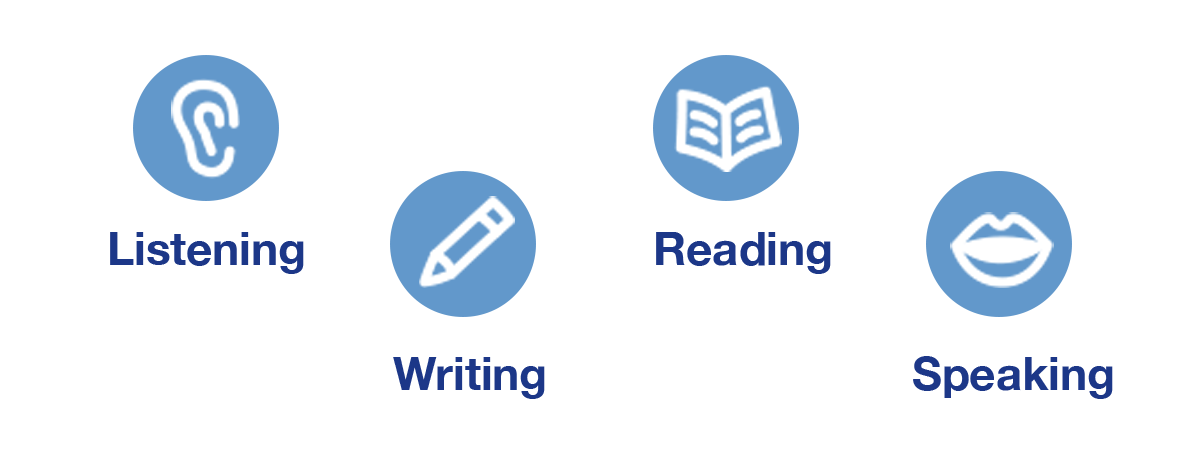
What does the IELTS test consist of?
There are 4 separate parts, each one focusing on a specific skill: Reading, Writing, Listening and Speaking.
IELTS Reading (60 minutes)
There are 3 long texts on a variety of academic subjects. They are authentic and taken from books, journals, or magazines, and may be factual, analytical or opinion-based.
Candidates have to identify key points, important information, understand meaning, recognise the writer’s opinion, and summarise arguments effectively.
IELTS Writing (60 minutes)
Candidates must write 2 texts. The first is a report on some data, such as a statistical table or a graph. The second is a discursive essay in which candidates respond to an opinion or statement about a particular topic.
Candidates are marked on whether they have answered the question set, used an appropriate style of language, and organised their thoughts clearly. They are also marked on grammatical accuracy, range of vocabulary, and their ability to connect ideas, sentences, and paragraphs correctly.
IELTS Listening (30 minutes)
There are 4 texts, 2 of them set in a social context, and 2 in a more educational or academic context. The texts may be conversations, discussions or a monologue, in a variety of accents.
Candidates need to listen for specific information, understand the main gist, and understand speakers’ opinions and attitudes.
IELTS Speaking (11-14 minutes)
This is a face-to-face speaking test with an IELTS examiner, divided into 3 parts. The first Is an introductory conversation; in the second, the candidate is given 1 minute to prepare a short presentation on a topic; in the third, the examiner and the candidate will discuss some questions connected with the topic in part 2.
Candidates are marked on their ability to express themselves clearly and accurately, to answer questions appropriately, their range of grammar and vocabulary, their level of ‘naturalness’, and their pronunciation and intonation.
Note: the test total time is 2 hours and 45 minutes. The Listening, Reading and Writing papers are always completed in one sitting. The Speaking test may be taken on the same day or up to seven days before or after the other tests.
IELTS Preparation
Self-study OET Option
One-to-one IELTS Coaching
Not sure what’s best for you? Then get in touch!
We are experts in IELTS preparation. We work with thousands of candidates every year and specialise in working with healthcare professionals. Clients include many NHS Trusts and private healthcare groups in the UK.



